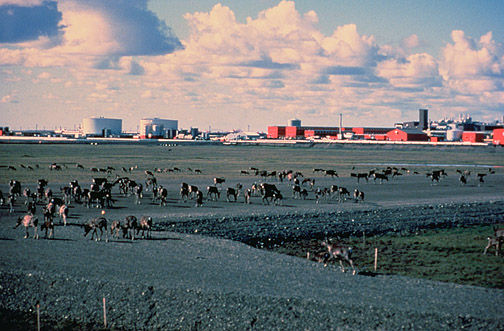Railroads, Pipelines and FDR Goes Fishing in Kodiak: This Week in Alaska History: August 1–August 7
- Alaska Means Business

- Jul 30, 2025
- 2 min read
Updated: Jul 31, 2025

August 1, 1959: Alaska’s First State Legislature Convenes (Juneau)

Alaska’s first state legislature convened in Juneau following statehood on January 3, 1959. This historic session marks the beginning of Alaska’s self-governance as the 49th U.S. state, with lawmakers addressing critical issues like resource management and infrastructure development, setting the stage for the state’s modern political framework.
August 2, 1958: Construction Begins on the Trans-Alaska Pipeline System (Fairbanks)

Preliminary work starts on the Trans-Alaska Pipeline System, a monumental project to transport oil from Prudhoe Bay to Valdez. Though not completed until 1977, this date marks early planning and surveying efforts. The pipeline later becomes a cornerstone of Alaska’s economy, enabling the state to become a major U.S. oil producer.
August 3, 1908: First Automobile Arrives in Fairbanks

The first automobile in Fairbanks, a Pope-Toledo, arrives for David Laiti, marking a significant step in modernizing transportation in Alaska’s interior. This event reflects the growing influence of American settlers and technology in the territory during the post-gold rush era, as Fairbanks develops into a regional hub.
August 4, 1899: White Pass & Yukon Route Railway Opens (Skagway)

The White Pass & Yukon Route Railway, a narrow-gauge railroad connecting Skagway to the Yukon, officially opens. Built to support Klondike Gold Rush prospectors, the railway transforms transportation in Alaska’s panhandle, facilitating trade and travel. Its engineering feats through rugged terrain make it a historic marvel still in use today.
August 5, 1975: Exxon Begins Exploratory Drilling in Prudhoe Bay (North Slope)

Exxon initiates exploratory drilling operations in the Prudhoe Bay oil field, one of the largest in North America. This milestone marks a pivotal moment in Alaska’s emergence as a major oil-producing region, setting the stage for the economic boom driven by the Trans-Alaska Pipeline and reshaping the state’s global energy significance.
August 6, 1886: First Recorded Eruption of Mount Redoubt (Cook Inlet)

Mount Redoubt, a stratovolcano in the Aleutian Range, experiences its first documented eruption, sending ash plumes across Cook Inlet. The event, observed by local indigenous communities and early explorers, underscores Alaska’s volatile geology. Redoubt’s later eruptions continue to impact aviation and local communities.
August 7, 1944: President Roosevelt Fishes on Kodiak Island (Kodiak)

President Franklin D. Roosevelt embarks on a trout fishing expedition at Buskin Lake on Kodiak Island during a wartime visit to Alaska. This trip underscores Alaska’s growing visibility as a U.S. territory and its strategic importance during World War II, while also highlighting Roosevelt’s personal interest in the region’s natural beauty.

.png)



